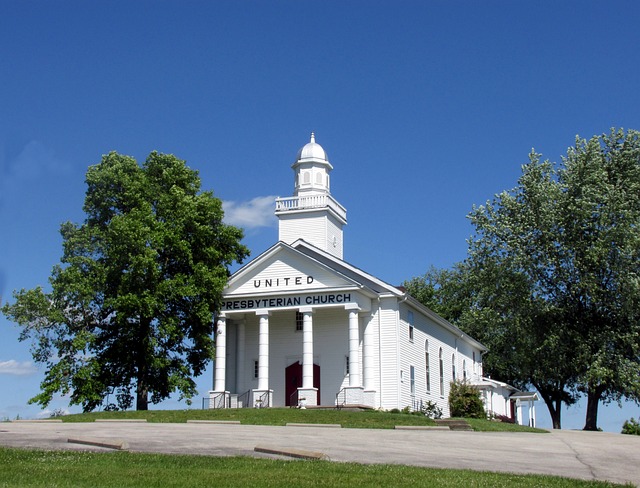Yes, Presbyterians do baptize babies.
Table of Contents
The History of Infant Baptism in Presbyterianism
Do Presbyterians baptize babies? This is a question that often comes up when discussing the practices of different Christian denominations. To answer this question, it is important to understand the history of infant baptism in Presbyterianism.
The practice of baptizing infants has a long history in the Christian church, dating back to the early centuries. However, the specific beliefs and practices surrounding infant baptism have varied among different denominations. In the case of Presbyterians, the practice of baptizing babies has been an integral part of their tradition.
The roots of infant baptism in Presbyterianism can be traced back to the Protestant Reformation in the 16th century. During this time, the reformers sought to return to the teachings and practices of the early church. They believed that infant baptism was consistent with the biblical teachings and the practices of the early Christians.
One of the key figures in the development of Presbyterianism, John Calvin, played a significant role in shaping the beliefs and practices of the denomination. Calvin believed that baptism was a sign and seal of God’s covenant with his people. He argued that just as circumcision was administered to infants in the Old Testament as a sign of God’s covenant, so too should baptism be administered to infants in the New Testament.
Calvin’s views on infant baptism were further developed and codified in the Westminster Confession of Faith, a document that serves as a foundational statement of belief for many Presbyterian churches. According to the Confession, baptism is to be administered to infants of believing parents as a sign and seal of their inclusion in the covenant community.
The practice of infant baptism in Presbyterianism is based on the belief that children are born into a covenant relationship with God. By baptizing infants, Presbyterians believe that they are acknowledging and affirming God’s grace and love for these children. It is seen as a way of welcoming them into the community of faith and committing to their spiritual nurture and growth.
While the practice of infant baptism is widely accepted in Presbyterianism, it is important to note that individual churches and pastors may have different views and practices. Some may require parents to make a profession of faith or undergo a period of instruction before baptizing their children, while others may baptize infants without any additional requirements.
In recent years, there has been some debate and discussion within Presbyterian circles about the practice of infant baptism. Some have questioned the theological basis for baptizing infants, while others have raised concerns about the role of personal faith and choice in the sacrament. These discussions reflect the ongoing exploration and interpretation of Scripture within the Presbyterian tradition.
In conclusion, Presbyterians do baptize babies as a part of their tradition and understanding of the Christian faith. The practice of infant baptism has deep historical roots in Presbyterianism, dating back to the Protestant Reformation. It is seen as a way of acknowledging God’s covenant with his people and welcoming children into the community of faith. While there may be variations in practice among individual churches, the belief in infant baptism remains a central aspect of Presbyterian theology.
Scriptural Basis for Infant Baptism in Presbyterian Theology

Do Presbyterians baptize babies? This is a question that often comes up when discussing Presbyterian theology. The answer is yes, Presbyterians do baptize babies, and there is a scriptural basis for this practice.
In Presbyterian theology, baptism is seen as a sacrament that signifies and seals God’s covenant with his people. It is a visible sign of God’s grace and a means of grace through which believers are united with Christ and incorporated into his body, the church. This understanding of baptism is rooted in the teachings of the Bible.
One of the key passages that supports infant baptism in Presbyterian theology is found in the book of Acts. In Acts 2:38-39, Peter preaches to the crowd on the day of Pentecost, saying, “Repent and be baptized, every one of you, in the name of Jesus Christ for the forgiveness of your sins. And you will receive the gift of the Holy Spirit. The promise is for you and your children and for all who are far off—for all whom the Lord our God will call.”
This passage is often interpreted as including children in the promise of baptism. Peter’s words suggest that baptism is not only for adults who repent and believe, but also for their children. This understanding is further supported by other passages in the New Testament that speak of entire households being baptized, such as the conversion of the Philippian jailer and his household in Acts 16:31-34.
Presbyterians also look to the Old Testament for support of infant baptism. In the Old Testament, circumcision was the sign and seal of God’s covenant with his people. It was administered to male infants on the eighth day after birth. In the New Testament, baptism is seen as the fulfillment and replacement of circumcision. Just as circumcision was administered to infants, so too is baptism.
Another important aspect of Presbyterian theology is the concept of covenantal theology. Presbyterians believe that God establishes covenants with his people throughout history, and these covenants include both believers and their children. Baptism is seen as the sign and seal of these covenantal relationships. Just as children were included in the covenant community in the Old Testament, so too are they included in the covenant community of the church today.
It is important to note that Presbyterian theology does not teach that baptism alone saves a person. Salvation is by grace alone through faith alone in Christ alone. Baptism is a visible sign of the inward reality of faith, but it does not guarantee salvation. It is a means of grace through which believers are reminded of God’s promises and are strengthened in their faith.
In conclusion, Presbyterians do baptize babies based on a scriptural basis found in both the Old and New Testaments. Baptism is seen as a sacrament that signifies and seals God’s covenant with his people. It is a visible sign of God’s grace and a means of grace through which believers are united with Christ and incorporated into his body, the church. While baptism is important, it is not the means of salvation. It is a reminder of God’s promises and a means of strengthening faith.
Understanding the Sacrament of Baptism in Presbyterian Worship
Do Presbyterians baptize babies? This is a question that often comes up when discussing the sacrament of baptism in Presbyterian worship. The answer is yes, Presbyterians do baptize babies, but there is more to it than just a simple yes or no.
In Presbyterian theology, baptism is seen as a sign and seal of God’s covenant with his people. It is a visible representation of God’s grace and a means of grace through which the Holy Spirit works in the life of the baptized. This understanding of baptism is rooted in the belief that God’s grace is not limited by age or ability to understand, but is freely given to all who receive it.
Baptizing babies is based on the belief that God’s grace is available to all, including infants. Presbyterians believe that baptism is a means by which God claims and includes children in the covenant community. It is a way of acknowledging that children are part of God’s family and are loved and accepted by God, even before they are able to understand or respond to God’s grace.
Some may question the practice of baptizing babies, arguing that infants are not capable of making a conscious decision to follow Christ. However, Presbyterians believe that baptism is not primarily about an individual’s decision, but about God’s action and initiative. It is God who takes the first step, reaching out to us in love and grace, and baptism is a way of responding to that love and grace.
Baptizing babies also reflects the belief that faith is not something that we achieve or earn, but something that is given to us as a gift. It is a recognition that faith is a journey that begins in infancy and continues throughout our lives. Baptism is seen as the starting point of that journey, a way of marking the beginning of a life lived in relationship with God.
While the practice of baptizing babies is common in Presbyterian churches, it is not the only way that baptism is understood or practiced. Some Presbyterian churches also practice believer’s baptism, which is the baptism of individuals who have made a conscious decision to follow Christ. This practice is based on the belief that baptism is a public declaration of faith and a personal commitment to follow Jesus.
Regardless of whether someone is baptized as a baby or as an adult, the sacrament of baptism is a significant and meaningful event in Presbyterian worship. It is a time of celebration and joy, as the church welcomes new members into the family of God. It is a time of prayer and blessing, as the congregation commits to supporting and nurturing those who have been baptized. And it is a time of reflection and renewal, as individuals are reminded of God’s love and grace and are called to live as faithful disciples of Jesus.
In conclusion, Presbyterians do baptize babies as a way of acknowledging God’s grace and including children in the covenant community. Baptism is seen as a sign and seal of God’s love and a means of grace through which the Holy Spirit works in the life of the baptized. Whether someone is baptized as a baby or as an adult, the sacrament of baptism is a significant and meaningful event in Presbyterian worship, marking the beginning of a life lived in relationship with God.
Debates and Controversies Surrounding Infant Baptism in Presbyterianism
Do Presbyterians baptize babies? This question has been the subject of much debate and controversy within the Presbyterian Church. While some denominations believe in baptizing infants, others argue that baptism should only be administered to those who can make a conscious decision to follow Christ. Let’s delve into this topic and explore the different perspectives within Presbyterianism.
One of the main arguments in favor of infant baptism is rooted in the belief that baptism is a sacrament of initiation into the Christian faith. Proponents of this view argue that just as circumcision was a sign of inclusion in the covenant community in the Old Testament, baptism serves as a sign of inclusion in the New Testament church. They believe that by baptizing infants, they are symbolically dedicating them to God and welcoming them into the community of believers.
On the other hand, opponents of infant baptism argue that it goes against the biblical principle of personal faith and repentance. They believe that baptism should be reserved for those who have made a conscious decision to follow Christ and have personally professed their faith. According to this perspective, infants are not capable of understanding the significance of baptism and should wait until they are older to make that decision for themselves.
Within Presbyterianism, there is a spectrum of beliefs regarding infant baptism. Some Presbyterian churches practice infant baptism as a normative practice, while others offer it as an option for parents who desire it. There are also Presbyterian churches that do not practice infant baptism at all, instead opting for believer’s baptism, which is the baptism of individuals who have made a personal profession of faith.
The debate surrounding infant baptism is not limited to theological arguments. It also touches on practical considerations within the church. For example, some argue that baptizing infants helps to create a sense of community and belonging from an early age. It allows families to publicly commit to raising their children in the faith and provides a support system within the church.
On the other hand, those who oppose infant baptism argue that it can lead to a false sense of security and complacency. They believe that if someone is baptized as an infant without understanding the significance of the act, they may not feel the need to pursue a personal relationship with Christ later in life. They argue that believer’s baptism, which requires a personal profession of faith, ensures that individuals fully understand and embrace the commitment they are making.
Ultimately, the question of whether Presbyterians baptize babies is not a simple one. It is a topic that has sparked passionate discussions and divided opinions within the Presbyterian Church. While some see infant baptism as a beautiful tradition that symbolizes God’s grace and inclusion, others view it as a departure from biblical principles of personal faith and repentance.
Regardless of where one stands on this issue, it is important to approach the debate with respect and understanding. The Presbyterian Church is a diverse community with a range of beliefs and practices. By engaging in thoughtful dialogue and seeking to understand different perspectives, we can foster unity and growth within the church.
Conclusion
Yes, Presbyterians do baptize babies.


